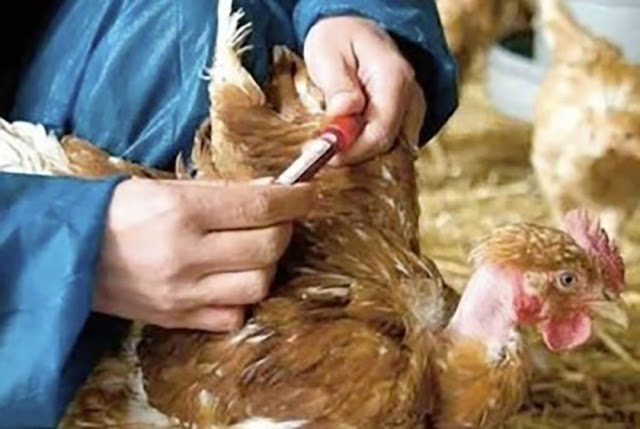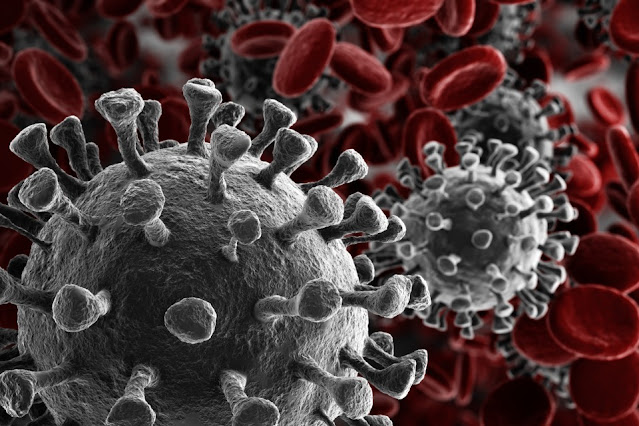Avian influenza, commonly known as bird flu, is a viral infection that affects birds, particularly domestic poultry and wild birds. It is caused by the influenza A virus and can range from a mild form with no symptoms to a severe and fatal form.
 |
| Avian influenza |
Avian influenza can be transmitted from birds to humans, although this is rare. When it does occur, the virus can cause severe respiratory illness and even death. The risk of human infection is highest in people who work closely with infected birds or who come into contact with contaminated surfaces.
The avian influenza virus is highly contagious and can spread rapidly among birds, causing widespread illness and death. The virus is spread through contact with infected birds or their droppings, as well as through contaminated surfaces such as feed and water sources.
 |
| Avian influenza |
Symptoms of avian influenza in birds can include respiratory distress, decreased egg production, and sudden death. In humans, symptoms can include fever, cough, sore throat, muscle aches, and in severe cases, pneumonia and respiratory failure.
There are several different strains of avian influenza, with varying degrees of severity. The H5N1 strain, which emerged in Asia in the late 1990s, is particularly virulent and has caused numerous outbreaks in both birds and humans.
 |
| Avian influenza |
The World Health Organization (WHO) and other international organizations monitor the spread of avian influenza and work to prevent outbreaks through surveillance, early detection, and response measures. In addition, vaccines have been developed to help prevent the spread of the virus among birds.
Prevention of avian influenza in humans involves avoiding contact with infected birds and practicing good hygiene, such as washing hands frequently and avoiding touching the eyes, nose, and mouth. In the event of an outbreak, public health officials may recommend additional measures such as wearing masks and avoiding large gatherings.
Avian influenza is a viral infection that primarily affects birds, but can also be transmitted to humans. It is highly contagious and can cause severe illness and death in both birds and humans. Prevention measures include avoiding contact with infected birds, practicing good hygiene, and monitoring for outbreaks.
Avian influenza is a global public health concern due to its potential to cause widespread illness and death in both birds and humans. The virus can quickly spread across borders and has the potential to cause a pandemic if a new strain emerges that can be easily transmitted from person to person.
 |
| Avian influenza |
In recent years, there have been several outbreaks of avian influenza in various parts of the world, leading to the culling of millions of birds and significant economic losses for the poultry industry. The most recent outbreak occurred in late 2020 and early 2021, affecting multiple countries in Asia and Europe.
The symptoms of avian influenza in birds can vary depending on the strain and the severity of the infection. Mild forms may cause no noticeable symptoms, while severe forms can lead to rapid death. In addition to respiratory symptoms, birds may also exhibit digestive and nervous system symptoms.
In humans, the symptoms of avian influenza can range from mild to severe, and in some cases, can be fatal. The risk of infection is highest for people who work with infected birds or who live in close proximity to them. In addition, people with weakened immune systems may be more susceptible to severe illness if they become infected with the virus.
The treatment of avian influenza in humans typically involves supportive care, such as oxygen therapy and fluid management. Antiviral medications may also be used, but their effectiveness can vary depending on the strain of the virus.
 |
| Avian influenza |
Prevention measures for avian influenza include strict biosecurity measures in poultry farms, such as controlling access to the farm, disinfecting equipment and facilities, and monitoring for signs of illness in birds. In addition, public health officials may recommend vaccination for people who are at high risk of infection, such as poultry workers and healthcare workers.
Avian influenza is a serious global health concern that requires continued monitoring and research. While the risk of human infection is currently low, the potential for the virus to mutate and become easily transmissible between humans underscores the need for continued vigilance and preparedness.
Comments
Post a Comment